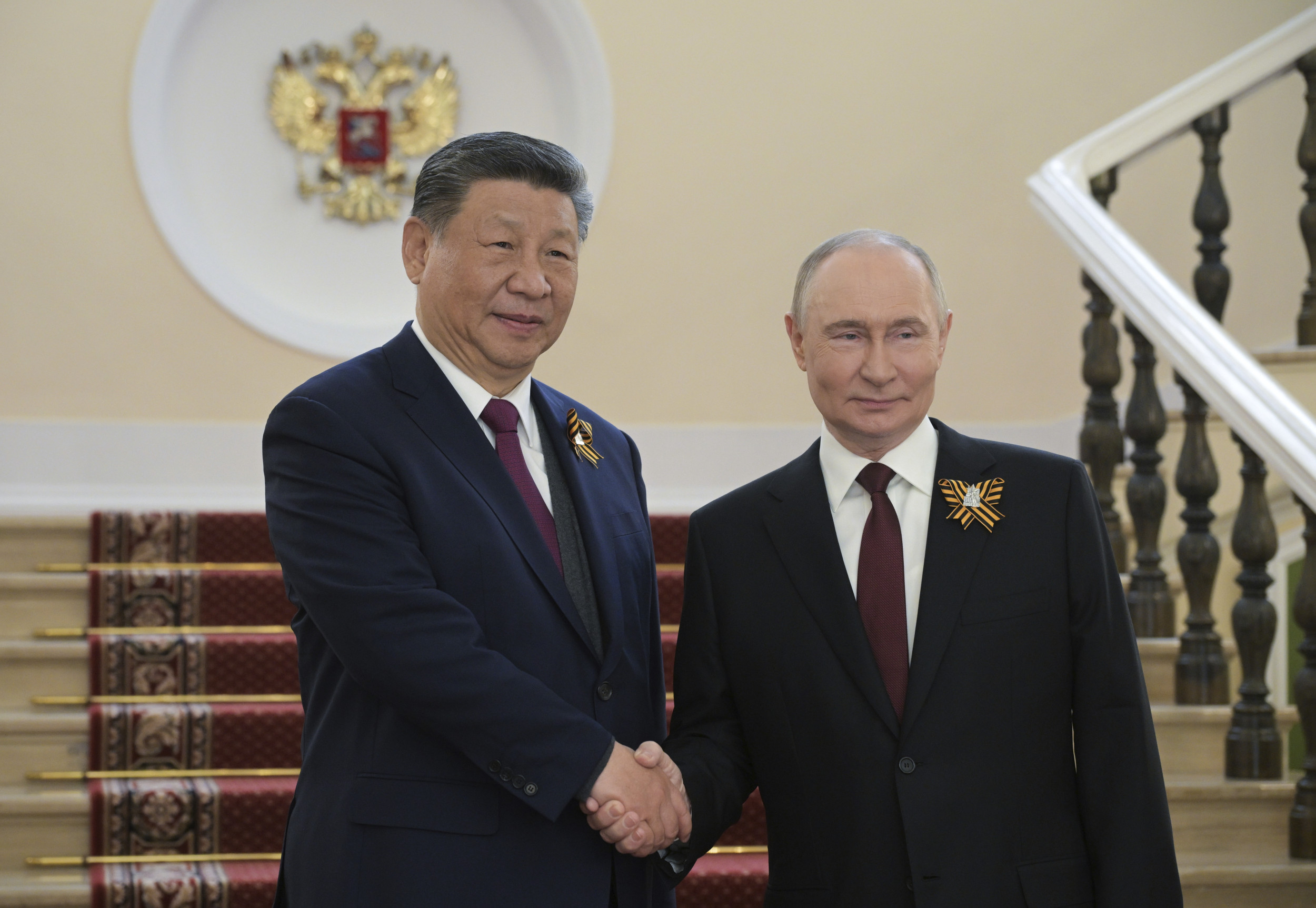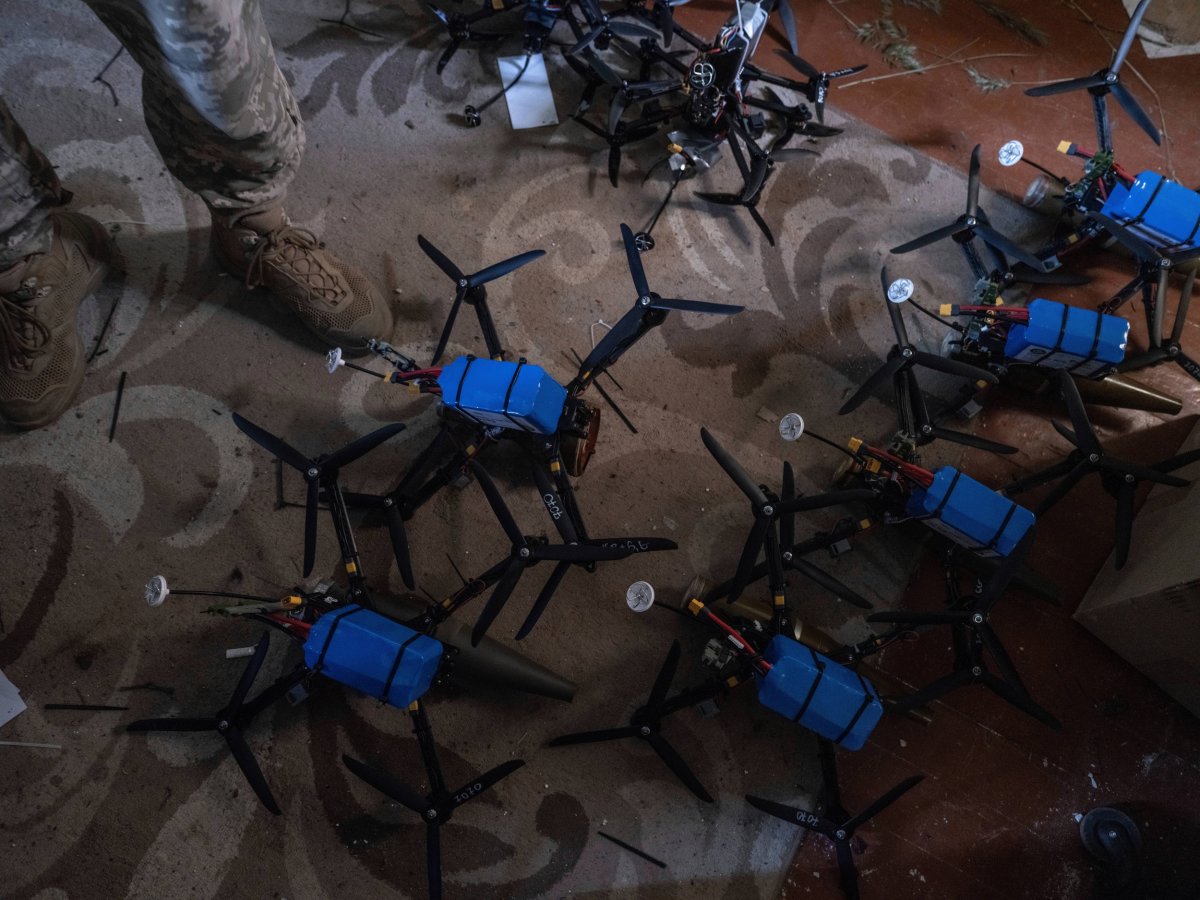
China is taking advantage of the Russia-Ukraine war to prepare for a potential future conflict by drawing lessons from the ongoing three-year-long conflict, according to a United States think tank.
Newsweek has contacted the Chinese and Russian foreign ministries by email for comment.
Why It Matters
While China has claimed neutrality in Moscow’s war with Kyiv, the East Asian power is providing diplomatic support to its quasi-ally, Russian President Vladimir Putin. Beijing has also presented a 12-point plan and proposed four principles to achieve peace.
Ukraine and its Western allies have long accused China of aiding Russia during the war, including by exporting dual-use technology. Beijing this week denied Ukrainian claims that it is supplying Russia with “lethal weapons,” asserting that it strictly controls dual-use items.
Alexei Nikolsky/RIA Novosti via AP
What To Know
In a RAND report titled “China’s Lessons from the Russia-Ukraine War,” political scientist Howard Wang and research assistant Brett Zakheim wrote that both the Chinese Communist Party (CCP) and the Chinese People’s Liberation Army (PLA) have made “significant efforts” to study the conflict and draw lessons for Chinese policy.
The research report—published on May 22—noted that CCP analysts believe Washington “manufactures crises to justify alliances, not because their allies share interests or values.”
“Accordingly, CCP analysts see these alliances as vulnerable and assess that China has opportunities to use disinformation to weaken U.S. alliances,” the authors said. The U.S. government has previously accused China of conducting a disinformation campaign related to the war.
For the Chinese military, which is being modernized to become a “world-class” force, PLA researchers assessed that America’s defense industrial base cannot sustain a protracted war and that the margin of U.S. technological superiority will diminish as a conflict drags on.
China believes that its defense mobilization system would offer advantages in an extended conflict, the report said. China, which has the world’s largest navy by hull count, operates 35 shipyards linked to the PLA, compared with just four public shipyards for the U.S. Navy.
The report also claimed that China is redefining hybrid warfare—the combination of military and nonmilitary actions—after observing how Russia overestimated its ability to deter military escalation through nonmilitary tools, which led to “disastrous battlefield outcomes.”
Given Russia’s failure, the report concluded, the PLA may be growing doubtful that it can prevent U.S.-China competition from erupting into conflict. It added that the PLA is shifting to a “new vision of warfare”—one resigned to fighting a costly, protracted conflict, rather than relying primarily on compelling enemies to surrender with minimal use of force.

Iryna Rybakova/Ukraine’s 93rd Mechanized Brigade via AP
What People Are Saying
The RAND’s report said: “[T]he lessons that CCP and PLA leaders learn from the Russia-Ukraine war support the CCP’s development of strategies and policies for strategic competition with the United States, including how to prosecute a potential future conflict such as a war over Taiwan.”
Mao Ning, spokesperson for the Chinese Foreign Ministry, said at a press conference on May 27: “China’s position on the Ukraine issue is consistent and clear. We’ve been committed to bringing about a ceasefire and promoting talks for peace. China has never provided lethal weapons to any party to the conflict, and strictly controls dual-use items.”
What Happens Next
It remains to be seen how the Chinese ruling party and military will apply the lessons learned from the Russia-Ukraine war to Taiwan, a self-ruled island claimed by Communist China, which has repeatedly threatened the use of force against the U.S. security partner.
